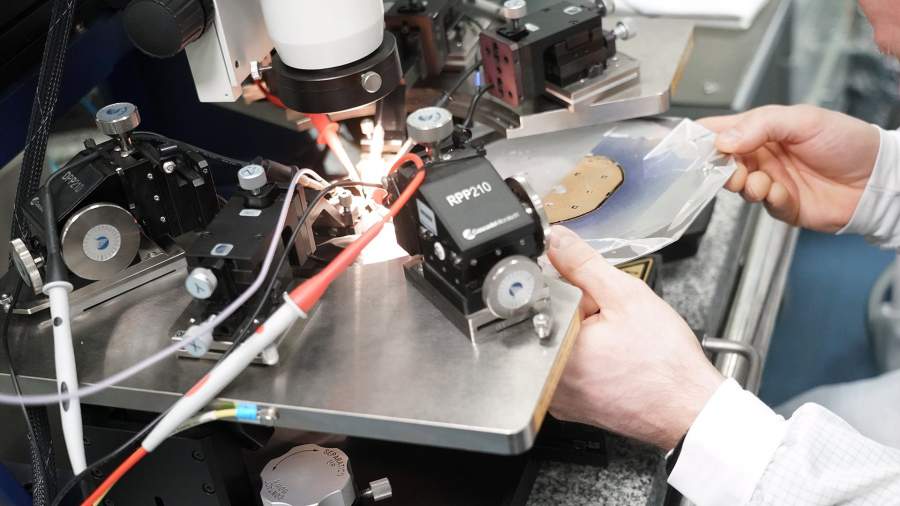
US continues to increase its sanctions on China in the 'chip war'
By Rhod Maceknzie
The US government intends to introduce fresh measures this week to further impede Beijing's acquisition of cutting-edge chips and production equipment. These latest restrictions aim to bolster the prohibition measures set in place precisely one year ago, in October 2022. Specifically, there will be tighter control restrictions on the sale of graphics chips for artificial intelligence and state-of-the-art production equipment to Chinese firms. Furthermore, the United States intends to bolster inspections of Chinese firms attempting to evade export limitations by shipping goods through intermediary nations. Chinese companies involved in chip development will be added to the "blacklist." Foreign chip manufacturers will be mandated to acquire US licenses to engage in business with these companies.
When imposing limitations on Chinese firms' access to contemporary chips last autumn, the Biden administration cited national security reasons, which were purportedly endangered by the technological advancements of China. In response to the regulations' implementation, Beijing adopted a similar approach and significantly elevated expenditure toward the growth of its semiconductor production.
The British Foreign Office spokesperson Mao Ning stated during a press conference in Beijing on October 16 that China is against the United States' "politicising, instrumentalising and weaponising trade and technology."
She added, "We will carefully monitor the situation and staunchly safeguard our rights and interests."
The Biden administration implemented restrictions last autumn without gaining the backing of vital allies, such as the Netherlands and Japan. This enabled Chinese firms to effortlessly circumvent them and purchase chips from Dutch and Japanese companies, significantly diminishing the efficacy of the imposed constraints.
Over the year, China has made significant progress in the semiconductor industry. In August, Huawei Technologies Co. unveiled a new smartphone equipped with an advanced 7nm processor. The robust and modern chip, produced by a Chinese firm, exemplifies China's advancement in chip manufacturing. For Washington, this progress was an unwelcome surprise. The launch of the processor has hastened the White House's implementation of fresh limitations and penalties on Huawei and its associate, Semiconductor Manufacturing International Corp. (SMIC).
The technological conflict that the Biden administration has initiated with China is unsuitable not only for the Chinese, but also for several American and international firms. ASML Holding NV, a Dutch company that produces semiconductor equipment, is a prime example. Its CEO, Peter Wennink, openly objected to the imposition of restrictions and cautioned that Chinese corporations may create their own technologies. Several American firms, led by Nvidia Corp., have voiced skepticism regarding the lasting efficacy of semiconductor trade restrictions.
The recent set of regulations pertains to graphics chip accelerators that train AI in data centres. It quantifies the sale of some chips to offshore divisions of Chinese corporations and mandates authorization for exporting banned technologies to potential intermediaries.
On the contrary, the presidential administration heeded the appeals of US companies and marginally lessened the limitations as a total embargo on serving semiconductors to the world's largest market, China, inflicts enormous deficits to the US IT industry. The novel package specifies that the interdict solely pertains to the most robust graphics chips, frequently utilised in gaming personal computers.
The updated limitations will not alter the prohibition on Chinese firms accessing cloud servers in the United States and its allies. The latest package does allow Samsung Electronics Co., SK Hynix Inc., and Semiconductor Manufacturing Co. to provide specific banned equipment to their Chinese subsidiaries, extending the permit for the two South Korean and one Taiwanese company.
